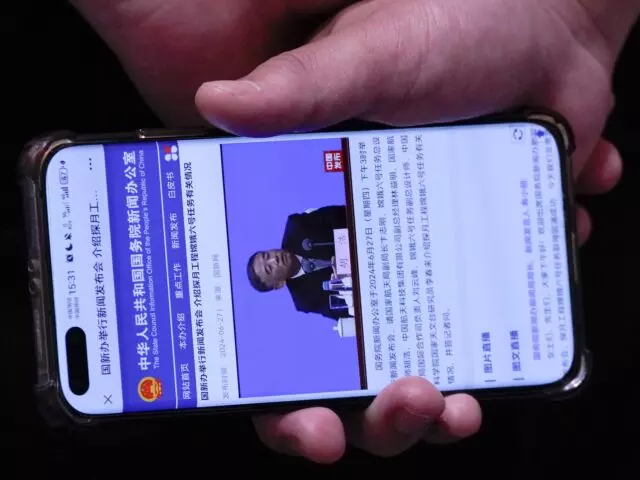Beijing’s New Security Measures: Expanding Surveillance and Intrusion into Personal Electronics.
The Chinese Communist regime in Beijing announced new security measures that will empower its officials to inspect smartphones and other personal electronics at will, including those belonging to foreign visitors. These intrusive searches can be performed without obtaining a warrant if the officials decide an “emergency” exists.
In July 2023, China’s rubber-stamp legislature approved a new “anti-espionage” law that dramatically increased the already vast surveillance powers of its police state. The new law was even more opaque and vaguely-worded than China’s previous security laws, leaving even more surveillance power at the discretion of individual officials.
The new law greatly expanded the Chinese government’s definition of “spying” to include merely “relaying on espionage organizations and their agents” – in other words, guilt by association – or possessing any data that Chinese officials decide is “related to national security interests” without obtaining whatever they decide is proper authorization.
China was already struggling to bring back foreign businessmen after the coronavirus pandemic, and the new espionage law did not exactly make them feel more welcome. Forbes warned in July 2023 that almost none of the key terms in China’s espionage law were firmly defined, leaving significant room for interpretation by Chinese officials.
As a result, critics anticipated a massive expansion of China’s panopticon surveillance state under the new law, to harvest data that would be useful for prosecuting its imposing array of new offenses. One year later, Chinese officials are receiving nearly unlimited authority to seize and inspect the personal electronics of anyone they suspect might be “spying.
Japan’s Kyodo News on Monday spoke to foreign travelers in China who said they would stop using their smartphones and personal computers. Japanese travel agencies expected tourism would decline, while Taiwan’s government warned its citizens to avoid all unnecessary travel to China.
Taiwan News noted Chinese officials attempted to reassure nervous travelers that the “conditions for inspection are clearly defined,” but they most certainly are not. Chinese officials also claimed that only high-ranking security officers can order smartphone and laptop searches after filling out plenty of bureaucratic paperwork, but this is not much of a reassurance.
The government of South Korea last week advised its citizens to exercise caution when using virtual private networks, chat programs, or social media programs in China because the new rules allow Chinese officials to “unilaterally access private information such as chat records, emails, photos, and login records if they suspect South Korean citizens in China are engaged in activities that threaten national security.
The expansion of China’s espionage law not only requires citizens to report any “spying” they might happen to observe, but offers substantial financial rewards for doing so. Combined with vague definitions of espionage crimes and expansive authority for officials to declare “emergencies,” there are good reasons for foreign travelers to worry they will be ordered to hand over their phones – and almost everyone outside of China probably has material on their phones that the Chinese Communist Party would consider objectionable.

